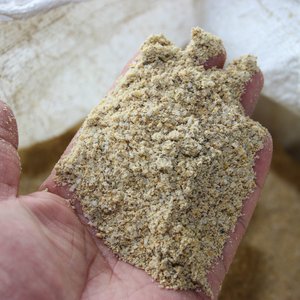Higher fish but lower micronutrient intakes: temporal changes in fish consumption from capture fisheries and aquaculture in Bangladesh
Aquaculture systems are designed to maximise productivity, with little consideration for nutritional quality of fish produced, a new study claims. People in Bangladesh are eating more fish, but less wild caught and more aquacultured; despite increased total fish consumption, there were significant decreases in nutritional benefit. As aquaculture becomes an increasingly important food source, it must embrace a nutrition-sensitive approach, moving beyond maximising productivity to also consider nutritional quality. Doing so will optimise the complementary role that aquaculture and capture fisheries play in improving nutrition and health, the study concludes. (Full report)
Bogard JR, Farook S, Marks GC, Waid J, Belton B, Ali M, et al. (2017) Higher fish but lower micronutrient intakes: Temporal changes in fish consumption from capture fisheries and aquaculture in Bangladesh. PLoS ONE 12(4): e0175098.







